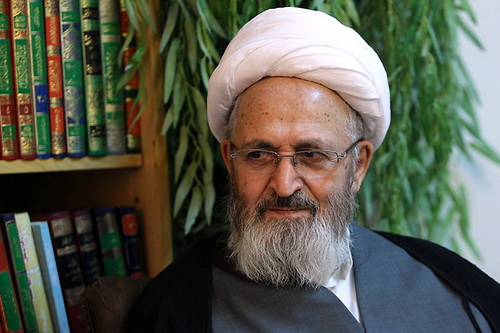Hawzah News Agency (Qom, Iran) - Oneness in worship is a principle that is held in common by all the divinely-revealed religions. A key reason why Messengers were sent by God to mankind was that they might remind people of this principle. As the Quran says:
And verily We have raised in every nation a Messenger [proclaiming]: Worship God and shun false gods. (Sura al-Nahl, xvi:36)
All Muslims, in the course of performing their five daily prayers, testify to this principle of oneness in worship when they utter the words of the Sura al-Fatiha: ‘Thee alone do we worship.’ Therefore, there is no doubting the fact that God alone is to be worshipped and that the worship of anything else is prohibited; nobody opposes this fundamental principle of religion. Insofar as there is debate on this subject, it concerns the status of other acts: namely, whether the performance of these acts be considered as evidence of worship of what is other than God. In order to arrive at a definitive judgement as regards this question, we must provide, first, a logical definition of worship, and then clearly separate those acts which can properly be subsumed within this definition, from those acts which pertain, on the contrary, to veneration (tazim) and revering (takrím).
There is no doubt that the worshipping of one’s parents, of the Prophets and of the saints is polytheism (shirk) and thus forbidden; on the other hand, bestowing veneration and respect upon them is necessary, and indeed forms part of integral Tawhid:
Thy Lord hath decreed that ye worship none save Him, and [that ye
show] kindness to parents. (Sura Bani Israil, xvii:23)
Now we must focus on the element that distinguishes ‘worship’ from ‘veneration’, and ask the question: How can a given act in certain circumstances—such as the prostration of the angels before Adam, and the prostration of the sons of Jacob before Joseph—be at one with Tawhid, while the same act, in different circumstances—such as prostration before idols—be an expression of shirk and idol-worship? An answer to this question emerges clearly from the discussion above, on the issue of oneness in governance. The type of worship which is directed to what is other than God, and which is therefore rejected and forbidden, is that whereby a person humbles himself before a relative, engendered being, in the belief that this being possesses some independent power to change the destiny of man and the universe, wholly or in part; in other words, in the belief that such a being is the lord or master of the world and of men.
On the other hand, if humility is manifested before a person who is himself a righteous slave of God, one who is blessed with virtue and nobility, and is, moreover, a model of piety and righteousness for mankind, then such humility is an aspect of proper respect and reverence for that person and not worship of him.
If the prostration of the angels, and that of the sons of Jacob, did not take on the taint of idolatrous worship, this is because such prostration is based upon a belief in our slavehood and servitude to God; but, accompanying this belief, there is the knowledge of the nobility of Adam and of Joseph, a nobility and a majesty that derive from their being honoured in the spiritual realm. In other words, the act of prostration is in no sense based upon a belief in their divinity or omnipotence.
Taking full cognisance of this principle, one is in a better position to evaluate the respect and veneration accorded by Muslims, in holy places, to the saints (awliya), those brought close to God.
It is obvious that the kissing of the holy tomb of the Prophet, or expressing joy on the anniversary of his birth, or on the anniversary of the advent of his mission (bi tha)—all are aspects of the reverence and love which are due to the Prophet; they are not in the least derived from any belief in his divinity.
In like manner, such acts as the chanting of poems praising the exemplary lives or lamenting the death of the saints, the preserving of all monuments left as traces of the prophetic mission, the building of mausoleums above the graves of holy personages—none of these acts can be called shirk (associating partners with God), nor can they be called bid a (innovation). They are not to be equated with shirk because their source is love and affection for the saints of God, and not a belief in their divinity; neither can they be regarded as bid a, since these actions are rooted in a principle enshrined in the
Quran and Hadith, that is, the necessity of loving and honouring the Prophet and his family. Our acts of reverence towards the Prophet on the occasion of his birthday and the onset of his mission (bi tha) are but the expression of the
outpouring of our love for him.
In stark contrast to this is the prostration of the polytheists before their idols, which is rejected and forbidden precisely because it springs from a belief in the divinity and authority of the idols, and from the false supposition that they exercise control over part
of man’s destiny; for the idolators believe that their idols have, at the very least, the power to glorify or abase, to forgive and to grant intercession.
Reference:
Ayatollah Jafar Sobhani, Doctrines of Shii Islam, A Compendium of Imami Beliefs and Practices, Translated and Edited by Reza Shah-Kazemi, published by I.B.Tauris Publishers, london • New york 2003


